 W
WThe Troubles was an ethno-nationalist conflict in Northern Ireland during the late 20th century. Also known internationally as the Northern Ireland conflict, it is sometimes described as an "irregular war" or "low-level war". The conflict began in the late 1960s and is usually deemed to have ended with the Good Friday Agreement of 1998. Although the Troubles primarily took place in Northern Ireland, at times the violence spilled over into parts of the Republic of Ireland, England, and mainland Europe.
 W
WFrom October 1988 to September 1994 the British government banned broadcasts of the voices of representatives from Sinn Féin and several Irish republican and loyalist groups on television and radio in the United Kingdom (UK). The restrictions, announced by the Home Secretary, Douglas Hurd, on 19 October 1988, covered eleven organisations based in Northern Ireland. The ban followed a heightened period of violence in the course of the Troubles, and reflected the UK government's belief in a need to prevent Sinn Féin from using the media for political advantage.
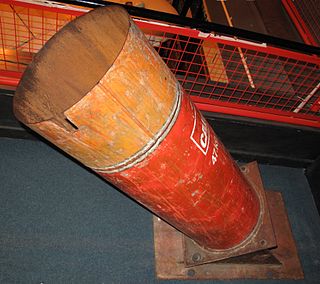 W
WBarrack buster is the colloquial name given to several mortars, developed in the 1990s by the engineering group of the Provisional Irish Republican Army (IRA).
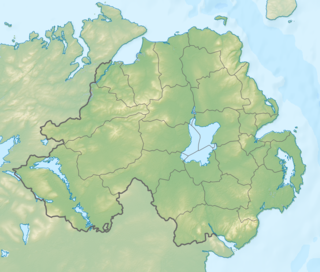 W
WThe Battle of Lenadoon was a series of gun battles fought over a six day period from 9–14 July 1972 between the Provisional IRA and the British Army, having started on Thursday, 9 July 1972 in and around the Lenadoon Avenue area and spreading to other places in Belfast. Loyalist paramilitaries and the Official Irish Republican Army were involved in some of the incidents. 28 people in total were killed in Belfast according to the CAIN: Sutton Index of Deaths. The violence ended a two-week truce between the forces of the British Government and the IRA.
 W
WChronologies of Provisional Irish Republican Army actions detail activities by the Provisional Irish Republican Army, an Irish republican paramilitary organisation that sought to end British rule in Northern Ireland and bring about an independent republic encompassing all of Ireland. The chronologies are organized by decade.
 W
WThe Civil Authorities Act 1922, often referred to simply as the Special Powers Act, was an Act passed by the Parliament of Northern Ireland shortly after the establishment of Northern Ireland, and in the context of violent conflict over the issue of the partition of Ireland. Its sweeping powers made it highly controversial, and it was seen by much of the Irish nationalist community as a tool of Ulster unionist oppression. The Act was eventually repealed by the Northern Ireland Act 1973, following the abolition of Northern Ireland's parliament and the imposition of direct rule by the British government.
 W
WThe Corrymeela Community was founded in 1965 by Ray Davey, along with John Morrow and Alex Watson, as an organisation seeking to aid individuals and communities which suffered through the violence and polarisation of the Northern Irish conflict.
 W
WThe dirty protest was part of a five-year protest during the Troubles by Provisional Irish Republican Army (IRA) and Irish National Liberation Army (INLA) prisoners held in the Maze Prison and a protest at Armagh Women's Prison in Northern Ireland.
 W
WThe Elected Authorities Act 1989 is an Act of the Parliament of the United Kingdom. It brought in a law that required candidates standing for election in Northern Irish local and Northern Ireland Assembly elections to declare they would not, by word or deed, express support for or approval of proscribed organisations or acts of terrorism.
 W
WIn Northern Ireland, the Eleventh Night or 11th Night refers to the night before the Twelfth of July, a yearly Ulster Protestant celebration. On this night, large towering bonfires are lit in many Protestant/loyalist neighbourhoods in Northern Ireland and are often accompanied by street parties and loyalist marching bands. The bonfires are mostly made up of wooden pallets and tyres, with the Irish tricolour being burnt. The bonfires are lit to celebrate (1688) and victory of Protestant king William of Orange over Catholic king James II at the Battle of the Boyne (1690), which began the Protestant Ascendancy in Ireland. The event has been condemned for displays of sectarian or ethnic hatred, anti-social behaviour, and for the damage and pollution caused by the fires. The flag of the Republic of Ireland, Irish nationalist/republican symbols, Catholic symbols, and effigies, are burnt on many bonfires. There have been attempts to make the event more family-friendly and environmentally-friendly. It is also known as "bonfire night", in common with other events in which bonfires are lit.
 W
WThe Flagstaff Hill incident was an international incident between the Republic of Ireland and the United Kingdom. It took place on the night of 5/6 May 1976 near Cornamucklagh, a townland just inside the Cooley Peninsula in the north of County Louth in the Republic of Ireland, when the Irish Army and Garda Síochána arrested eight British Special Air Service soldiers who had illegally crossed the Irish border.
 W
WThe Glenanne gang or Glenanne group was a secret informal alliance of Ulster loyalists who carried out shooting and bombing attacks against Catholics and Irish nationalists in the 1970s, during the Troubles. Most of its attacks took place in the "murder triangle" area of counties Armagh and Tyrone in Northern Ireland. It also launched some attacks elsewhere in Northern Ireland and in the Republic of Ireland. The gang included British soldiers from the Ulster Defence Regiment (UDR), police officers from the Royal Ulster Constabulary (RUC), and members of the Mid-Ulster Brigade of the Ulster Volunteer Force (UVF). Twenty-five British soldiers and police officers were named as purported members of the gang. Details about the group have come from many sources, including the affidavit of former member and RUC officer John Weir; statements by other former members; police, army and court documents; and ballistics evidence linking the same weapons to various attacks. Since 2003, the group's activities have also been investigated by the 2006 Cassel Report, and three reports commissioned by Irish Supreme Court Justice Henry Barron, known as the Barron Reports. A book focusing on the group's activities, Lethal Allies: British Collusion in Ireland, by Anne Cadwallader, was published in 2013. It drew on all the aforementioned sources, as well as Historical Enquiries Team investigations. The book was the basis for the 2019 documentary film Unquiet Graves, directed by Sean Murray.
 W
WThe Glencree Centre for Peace and Reconciliation is a non-governmental charitable organisation located in the Republic of Ireland. Its goal is to promote peace and reconciliation within and between communities through facilitated dialogue and learning. It was founded as a response to the Troubles and its aftermath. It is housed in a complex of buildings that had many previous functions including barracks and reformatory school.
 W
WThe Ulster Defence Regiment (UDR) was an infantry regiment of the British Army established in 1970, with a comparatively short existence ending in 1992. Raised through public appeal, newspaper and television advertisements, their official role was the "defence of life or property in Northern Ireland against armed attack or sabotage" but unlike troops from Great Britain they were never used for "crowd control or riot duties in cities". It was the largest infantry regiment in the British Army, formed with seven battalions plus another four added within two years.
 W
WThe Historical Enquiries Team was a unit of the Police Service of Northern Ireland set up in September 2005 to investigate the 3,269 unsolved murders committed during the Troubles, specifically between 1968 and 1998. It was wound up in September 2014, when the PSNI restructured following budget cuts.
 W
WThe 1981 Irish hunger strike was the culmination of a five-year protest during The Troubles by Irish republican prisoners in Northern Ireland. The protest began as the blanket protest in 1976, when the British government withdrew Special Category Status for convicted paramilitary prisoners. In 1978, the dispute escalated into the dirty protest, where prisoners refused to leave their cells to wash and covered the walls of their cells with excrement. In 1980, seven prisoners participated in the first hunger strike, which ended after 53 days.
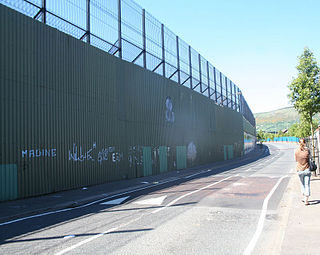 W
WInterface area is the name given in Northern Ireland to areas where segregated nationalist and unionist residential areas meet. They have been defined as "the intersection of segregated and polarised working class residential zones, in areas with a strong link between territory and ethno-political identity".
 W
WHMS Maidstone was a submarine depot ship of the Royal Navy. She operated in the Mediterranean Sea, Indian Ocean and Pacific Ocean during the Second World War. She was later used as a barracks ship and then a prison ship in Northern Ireland.
 W
WThis article details the events as they occurred on Bloody Sunday (1972).
 W
WFrom 6 to 11 July 1997 there were mass protests, fierce riots and gun battles in Irish nationalist districts of Northern Ireland. Irish nationalists/republicans, in some cases supported by the Provisional Irish Republican Army (IRA), attacked the police and British Army. The protests and violence were sparked by the decision to allow the Orange Order to march through a Catholic/nationalist neighbourhood of Portadown. Irish nationalists were outraged by the decision and by the RUC's aggressive treatment of those protesting against the march. There had been a bitter dispute over the march for many years.
 W
WThe Northern Ireland Act 1973 was an Act of the Parliament of the United Kingdom which abolished the death penalty for murder in Northern Ireland, and established the Diplock courts in which terrorist offences were tried by a judge without a jury. It has mostly been repealed, the anti-terrorism provisions having been superseded by subsequent legislation. The death penalty had not been used in Northern Ireland since 1961, when Robert McGladdery was hanged.
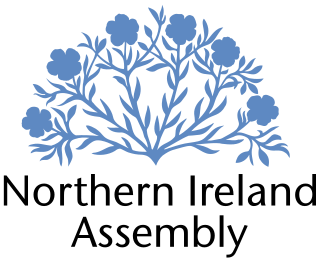 W
WThe Northern Ireland Assembly, frequently referred to by the metonym Stormont, is the devolved legislature of Northern Ireland. It has power to legislate in a wide range of areas that are not explicitly reserved to the Parliament of the United Kingdom, and to appoint the Northern Ireland Executive. It sits at Parliament Buildings at Stormont in Belfast. The Assembly was in a period of suspension until January 2020, after it collapsed in January 2017 due to policy disagreements between its power-sharing leadership, particularly following the Renewable Heat Incentive scandal. In January 2020, the British and Irish governments agreed on a deal to restore devolved government in Northern Ireland.
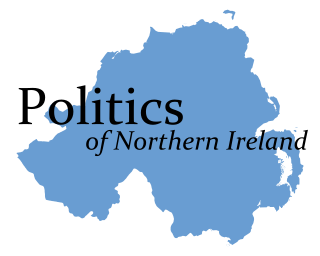 W
WThe Northern Ireland Assembly was a legislative assembly set up by the Government of the United Kingdom on 3 May 1973 to restore devolved government to Northern Ireland with the power-sharing Northern Ireland Executive made up of unionists and nationalists. It was abolished by the Northern Ireland Act 1974.
 W
WOperation Banner was the operational name for the British Armed Forces' operation in Northern Ireland from 1969 to 2007, as part of the Troubles. It was the longest continuous deployment in British military history. The British Army was initially deployed, at the request of the unionist government of Northern Ireland, in response to the August 1969 riots. Its role was to support the Royal Ulster Constabulary (RUC) and to assert the authority of the British government in Northern Ireland. This involved counter-insurgency and supporting the police in carrying out internal security duties such as guarding key points, mounting checkpoints and patrols, carrying out raids and searches, riot control and bomb disposal. More than 300,000 soldiers served in Operation Banner. At the peak of the operation in the 1970s, about 21,000 British troops were deployed, most of them from Great Britain. As part of the operation, a new locally-recruited regiment was also formed: the Ulster Defence Regiment (UDR).
 W
WOperation Demetrius was a British Army operation in Northern Ireland on 9–10 August 1971, during the Troubles. It involved the mass arrest and internment of 342 people suspected of being involved with the Irish Republican Army (IRA), which was waging an armed campaign for a united Ireland against the British state. It was proposed by the Northern Ireland Government and approved by the British Government. Armed soldiers launched dawn raids throughout Northern Ireland, sparking four days of violence in which 20 civilians, two IRA members and two British soldiers were killed. All of those arrested were Irish nationalists, the vast majority of them Catholic. Due to faulty intelligence, many had no links with the IRA. Ulster loyalist paramilitaries were also carrying out acts of violence, which were mainly directed against Catholics and Irish nationalists, but no loyalists were included in the sweep.
 W
WThe Parades Commission is a quasi-judicial non-departmental public body responsible for placing restrictions on any parades in Northern Ireland it deems contentious or offensive. It is composed of seven members, all of whom are appointed by the Secretary of State for Northern Ireland. Restrictions it can impose include a prohibition on music being played, re-routing parades to avoid contentious areas, or banning certain participants based on previous breaches of its determinations. Its rulings are usually enforced by either parade stewards or the police, though there are disputes as to whether this is done to the letter of the law in certain areas. The Commission acts under the Public Processions Act 1998.
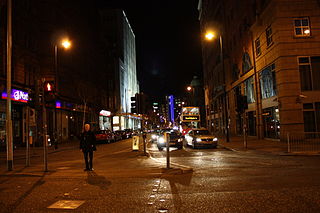 W
WSince the early 1970s, extrajudicial punishment attacks have been carried out by Ulster loyalist and Irish republican paramilitary groups in Northern Ireland. Attacks can range from a warning or expulsion from Northern Ireland, backed up by the threat of violence, to severe beatings that leave victims in hospital and shootings in the limbs. The cause of the attacks is disputed; proposed explanations include the breakdown of order as a result of the Northern Ireland conflict, ideological opposition to British law enforcement, and the ineffectiveness of police to prevent crime.
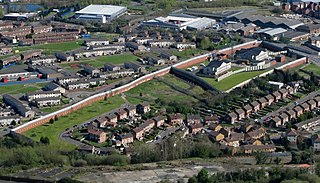 W
WThe peace lines or peace walls are a series of separation barriers in Northern Ireland that separate predominantly republican and nationalist Catholic neighbourhoods from predominantly loyalist and unionist Protestant neighbourhoods. They have been built at urban interface areas in Belfast, Derry, Portadown and elsewhere. The stated purpose of the peace lines is to minimise inter-communal violence between Catholics and Protestants.
 W
WThe Prevention of Terrorism Act 1989 was one of the Prevention of Terrorism Acts of the United Kingdom related to The Troubles in Northern Ireland.
 W
WThe Representation of the People Act 1981 is an Act of the Parliament of the United Kingdom. It creates the provision for the automatic disqualification of an MP if they're imprisoned for over a year, leading to a by-election being held in their constituency.
 W
WThe Special Patrol Group (SPG) of the Royal Ulster Constabulary was a tactical reserve of 150 officers which had the role: to provide backup in civil commotion, to police sensitive areas at times of confrontation, and to show the flag in a disciplined and impressive way to those who wished to break the peace. Formerly known as the Police Reserve Force, the name was changed to Special Patrol Group in 1970 to avoid confusion between the Reserve Force and the newly formed RUC Reserve.
 W
WTaig, and also Teague, are anglicisations of the Irish-language male given name Tadhg, used as ethnic slurs for a stage Irishman. Taig in the context of the Troubles in Northern Ireland is used by Protestant loyalists to refer to Catholic nationalists.
 W
WThe Terrorism Act 2000 (c.11) is the first of a number of general Terrorism Acts passed by the Parliament of the United Kingdom. It superseded and repealed the Prevention of Terrorism Act 1989 and the Northern Ireland Act 1996. It also replaced parts of the Criminal Justice Act 1998. The powers it provides the police have been controversial, leading to noted cases of alleged abuse, and to legal challenges in British and European courts. The stop-and-search powers under section 44 of the Act have been ruled illegal by the European Court of Human Rights.
 W
WThiepval Barracks in Lisburn, County Antrim, is the headquarters of the British Army in Northern Ireland and its 38th (Irish) Brigade.
 W
WThe Ulster Defence Regiment (UDR) was an infantry regiment of the British Army established in 1970, with a comparatively short existence ending in 1992. Raised through public appeal, newspaper and television advertisements, their official role was the "defence of life or property in Northern Ireland against armed attack or sabotage" but unlike troops from Great Britain they were never used for "crowd control or riot duties in cities". It was the largest infantry regiment in the British Army, formed with seven battalions plus another four added within two years.
 W
WUlster loyalism is the political movement for maintaining Northern Ireland within the United Kingdom. Like most unionists, loyalists are attached to the British monarchy, support the continued existence of Northern Ireland, and oppose a united Ireland. Ulster loyalism has been described as a kind of ethnic nationalism and "a variation of British nationalism".
 W
WThe Ulster Project was started in 1975 by Reverend Stephen Kent Jacobson of the Episcopal Church in the US and the Rev. Kerry Waterstone, a Church of Ireland priest in Tullamore, County Offaly, Republic of Ireland, in order to provide a safe place in the United States for teenagers from Northern Ireland to discuss the climate of "the Troubles" that was facing them at home. Its original success in Connecticut led rapidly to other member cities across the United States.
 W
WUlster Resistance (UR), or the Ulster Resistance Movement (URM), is an Ulster loyalist paramilitary movement established by Ulster loyalists in Northern Ireland on 10 November 1986 in opposition to the Anglo-Irish Agreement.
 W
WThe Wolfe Tone Societies is an Irish republican group whose chief objective is the establishment of a 'united Irish Republic.' It evolved from the commemorative Directories which the IRA helped set up in 1963 to mark the bicentenary of the 1763 birth of Wolfe Tone. In 1964 the Directories were dissolved and replaced with the Wolfe Tone Society. The publication of the Wolf Tone Society from 1965 onward was called Tuairisc.